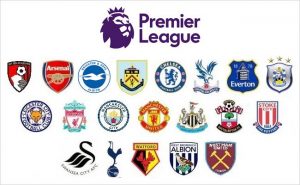The Premier League is one of the most competitive top flights in world football. For newly promoted sides to go toe-to-toe with Manchester City, Liverpool and other well-established sides, the gulf in class, as evidenced by the 2020/21 season, often proves to be too much.
With just a handful of games left, Fulham looks destined to join West Bromwich Albion and finish in the bottom three, and thus be relegated back to the Championship, just twelve months after winning promotion up from the second tier. Long-term stats, premier league betting odds and extensive analytics show this is not unusual.
Since 1995, just 42 out of 74 newly-promoted sides have been able to gain promotion to the Premier League and then stay there beyond the first season up in the top flight. More than half of the sides being relegated in that sample shows that teams are coming up more often just to go straight back down than they are to secure survival.
The 2019/20 season was a bit of an outlier as two out of the three promoted teams managed to stay up, as Aston Villa confirmed their safety on the final day of the season. They joined Sheffield United, who had an impressive finish in ninth place. Of the trio of promoted sides, only Norwich City was relegated.
The Canaries will get a shot at redemption next season after they bounced straight back to the Premier League. However, along with Watford and the third team that goes up via winning the playoffs, they will find it just as difficult to survive in a division where the bigger sides are getting richer.
If you like to have a bet on soccer, you should always seek out the latest Betting Advice to see whether a surprise result is worth backing. By reviewing the latest odds for all of the latest fixtures in the Premier League and other major sports, including the NFL, NBA, and MLB, it is possible to make the best plays when game day comes around.
Gulf in value of “big six”
The market value of the so-called “big six,” who were recently involved in the Super League breakaway that threatened the future of the Champions League, often dwarfs that of the other 14 sides in the division.
Manchester United is currently the fourth most valuable club in world football, behind only Barcelona, Real Madrid, and Bayern Munich. According to Forbes, United is worth around $4.2bn and can bring in $643m in revenue annually.
All of the “big six” are in the top ten list of richest association football clubs with Liverpool ($4.1bn), Manchester City ($4bn), Chelsea ($3.2bn), Arsenal ($2.8bn), and Tottenham Hotspur ($2.3bn) all able to call on huge funds when required.
While West Ham United and Leicester City feature in the top 20, they are “only” worth $508m and $455m, respectively, highlighting the gulf in value even between teams that are the most successful in the top division. Leicester, for example, still looks set to finish in the top four and will then play in the Champions League next season.
However, even the £500m value is vastly more than newly promoted teams. Other Premier League clubs, including Wolves, Aston Villa, and Everton, are worth more than £300m.
As top-flight clubs continue to earn more, it is tough for a team promoted from the Championship to compete, especially during that first season up when the challenge is especially tough.
Do smaller teams always get outclassed?
After promotion, stats show that it is much easier for a team to remain in the Championship, League One, and League Two than the Premier League. The fact that the survival rate is low suggests that anyone looking to make bets on soccer matches will often find that it is better to back a team like Man United and Liverpool in games against newly-promoted teams.
This is a solid strategy to follow due to the sustained success of the “big six.”
While Liverpool has struggled this term, they are still near the top of the table and, more often than not, will beat sides lower in the table, both at Anfield and in away games.
It is not always the case, though. West Brom, who have been relegated, recently thumped high flying Chelsea 5-2 at Stamford Bridge even though the latter has now advanced to the final of the Champions League.
While lesser sides may not remain in the division, they almost always secure a shock result or two against a bigger side.
Last season, Norwich beat Man City 3-2, even though they eventually were relegated.
That suggests that every team can win on a game-by-game basis, and that is a hallmark of the Premier League, its competitiveness. However, in the long term, newly promoted sides are finding it just as tough to stick around, which is unlikely to change as bigger teams strengthen season-over-season.
Can small funds hold a club back?
Splashing the cash can help a newly promoted team hold its own in the Premier League. That may be more difficult this summer due to the impact of the pandemic, which has made it more challenging to generate match day revenue and other funding that could be used for transfers.
Of the 21 teams with a net spend of +$34m in the transfer window, only five have been relegated. With those in charge of clubs set to be tightening the purse strings in the short to medium term due to the effects of COVID-19, the task of staying up could very well be more problematic for those promoted, though that trend is likely to be felt across all Premier League clubs.
Stats show that sides new to the top flight generally struggle to score goals and keep the opposition out at the other end and that an early-season slump can often be fatal, as can an inability to win home fixtures. With a squad that has less quality than bigger sides, all of these factors can be a problem for those promoted.
That all means that it is getting harder to stay in the Premier League. However, those coming up won’t stop trying to buck the trend and then carve out a future where they become top-flight regulars and potential Champions League challengers in the long term. This despite the seemingly endless dominance of the “big six.”






